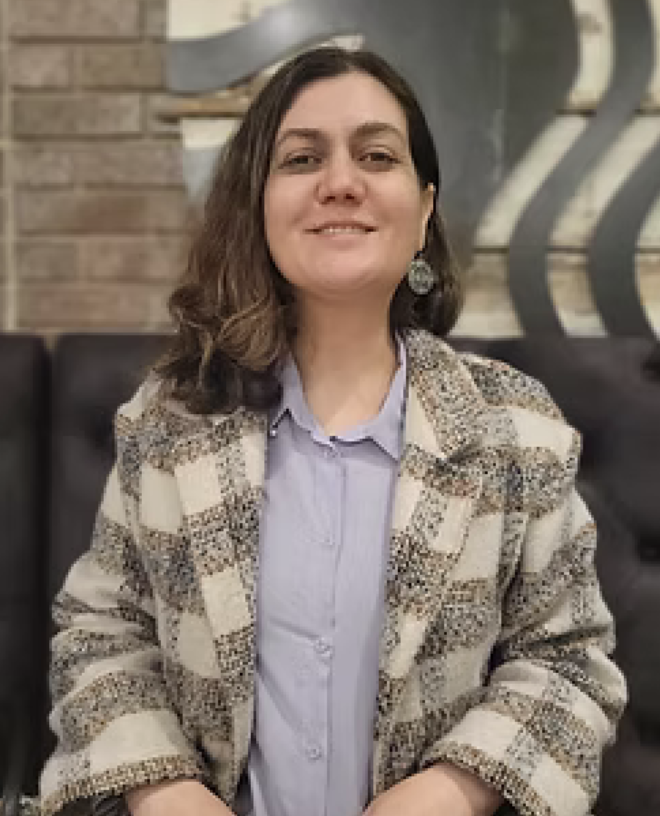Beril Berk is the Executive Director of the Dialogue Institute of Dallas. She’s also a practicing immigration lawyer. We were grateful that she sat down with our pastoral assistant, Jillian Shannon, to share more of her story, her thought process, and what she has found to work well toward building bridges in Dallas during this time of severe polarization.
On how she ended up as the Executive Director of the Dialogue Institute of Dallas …
I was volunteering with Hussein, the previous executive director. At first I was the head of the Arts and Culture committee and we organized some beautiful programs. But it got so intense at the end, it was going too much over just volunteering. Hussein said we need to offer you a part-time job. And we had been a good working couple, so it was very effective and efficient. We got the nonprofit of the year award from Richardson Chamber of Commerce in 2024 for the events that were organized in 2023. And then just before he was leaving, he offered me to step in. After long discussions, then thinking periods, I accepted.
About the events offered at the Dialogue Institute …
BB: Every year, Ramadan dinners are one of our interfaith signature events. And around 25 different worship places host us at their place. We prepare a meal, make a presentation about Ramadan. So it's different churches, temples, synagogues, and hospitals. This past school year, one of them was the Dallas Police Department.
Some of the signature events, like the first responders’ appreciation dinner, it's just an appreciation dinner. So it doesn't involve an education component. It's an opportunity for the local community to come together and appreciate local first responders. But in the year which we got to award, we also organized our first Women's Day dinner and panel. And this has become an annual program. This is a three or four women panel. And then during Ramadan, yes, we make a presentation about Ramadan. People sit at the tables, they learn from each other. Especially our Christian friends, they have practices similar to Ramadan. So our members learn from each other at the tables. And we are having some dialogue events too.
Sometimes when you say interfaith, only religious people who are attending a church or a temple or a synagogue come to events. So we have more diverse events like our cooking classes. They're our most regular monthly events. We are sharing Turkish cuisine. It's on the last Saturday of each month.
On building bridges not only between religions but between diverse professions …
That's actually intentional. Of course, we have two small praying rooms in the back, but it's because our members are practicing Muslims. So it's very convenient. One, they have something to do at the Dialogue Institute, which we are also using as a cultural center.
They're praying there, kids are sleeping. Sometimes playing in those rooms, but it's not a sacred space.
This past year we became a partner organization together with Thanksgiving Foundation for a year long project called Interreligious Communities Project designed by Sharing Sacred Spaces. So in this project we went to one sacred space, learned about the architecture and relationship with the architecture between the architecture and their fate. But because both Thanksgiving Foundation and Dialogue Institute are not sacred spaces, we were the partner organizations.
On whether the Dialogue Institute has faced pushback on dialogue due to the tragic conflict with Israel and Palestine …
Actually, when volunteers come together, everyone is aware of what the aim is, and we are focusing on interfaith dialogue, intercultural dialogue. So I think our events went well all year. So. If I said we had a pushback, that would be unjust, unfair.
On what is distinct about doing this work in Dallas …
The local community here is very well connected. Dallas is a big city, but even in the local community, there are people working for the city, working for the police department, the fire department, the emergency management departments, all nonprofits, everyone literally knows each other. One of the former mayors founded Richardson Interfaith Alliance. There are so many different worship places and two nonprofit organizations that come together every month to hear someone from the city speak about a different topic. And every year we celebrate Thanksgiving together - all these organizations, all of their members.
On how dialogue can uniquely help in this moment of intense polarization …
Dialogue continues to work on building bridges. We see a lot of diversity at the Dialogue Institute. And that's great. We love our guests, we love to learn from them. We love to do good deeds together. For most of those programs, sometimes because of the media, if we watched something about a group from the media first and we did not have any information about them at all, all of us can have some prejudices. When we meet people, when we share our stories, when we sit at a table together and learn from each other, your perception changes and you see how the actual reality is different. And through the programs, we see this a lot because people are so diverse.
At present, the first step is getting to know each other. But to achieve more good goals for everyone, for our kids, for the future, we should be doing good deeds together rather than just getting to know each other. Doing good deeds together, acting together for a common purpose, I think that becomes more important now.

